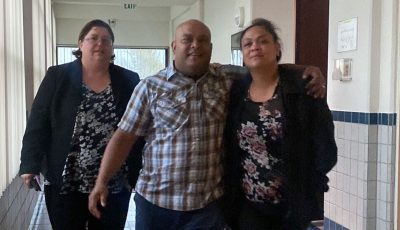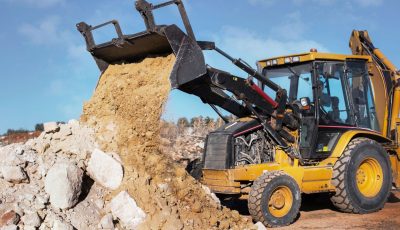CW worker gets FEMA assistance
FEMA says they may be required to return funds
The Federal Emergency Management Agency insists that foreign workers do not qualify for individual assistance but, in the scramble of thousands of applicants being processed, it seems that one did manage to fall through the cracks.
A foreign worker on Saipan who holds a CNMI-only (CW) immigration status was able to receive financial assistance from FEMA even if he/she does not have a U.S. citizen child who would have made him/her qualified.
According to the foreign worker, who agreed to speak on the condition of anonymity, he/she went through the same process as everyone else and registered through FEMA’s hotline during the first week of August.
“I said, ‘I’m not a U.S. citizen but I’m a contract worker here in Saipan,’” the foreign worker told Saipan Tribune, recalling the phone interview.
They advised the worker to wait for the pamphlet as well as the inspection.
More than 10 days after the inspection, the CW worker was able to receive an approval letter stating that they approved the worker’s rental and property assistance worth almost $4,000.
The foreign worker said s/he was glad when the assistance arrived but just a day after, he/she read in the newspapers that CWs are not eligible to receive FEMA assistance. He/she immediately went back to FEMA’s Disaster Recovery Center to ask what’s going on.
“I asked them, ‘What will I do? Because I don’t want to be in trouble with you guys in the long run,’” the foreign worker said.
In the end, they told the worker to just hold on to the money for awhile.
Asked for a comment on why a CW worker was able to receive assistance, FEMA’s external affairs officer Veronica Verde said, “That’s on a case-by-case [basis] as far as who receives FEMA assistance. I couldn’t be able to answer your question.”
She added that she couldn’t verify what kind of assistance the foreign worker got but couldn’t discuss the case due to privacy reasons.
“I would have to really look into their case just to see what that was and why they qualified,” Verde said.
She pointed out that the foreign worker could have a child who is a U.S. citizen, which would then make him/her qualified, but the worker told Saipan Tribune that he/she doesn’t have one.
According to the foreign worker, he/she just wants to know what to do with the money. If he/she is asked to return it, the worker said he/she would do so.
“I really can’t do anything; it’s their money. I would return it but that’s sad,” the foreign worker said.
Verde said those who aren’t eligible may be required to return funds.
“Applicants who received money for which they’re not entitled to can be required to return it. Applicants who sign the declaration and release form stating they’re eligible, while knowing that they’re not will be committing fraud,” Verde said.
If there is any doubt on the part of the applicant, they can always call FEMA back, she added.
When asked if they will be looking into their system to check on the ineligible ones that got assistance, Verde said that those who know of someone committing fraud may report it to FEMA.
Register despite immigration status
Though FEMA’s assistance can only be provided to U.S. citizens, non-citizen nationals, and qualified aliens, the agency still encourages all those who suffered damage due to Soudelor to register regardless of their status.
“Even if they’re not eligible for FEMA assistance due to immigration status, they may be eligible from exempt programs such as assistance from volunteer agencies,” Verde said.
“We do want to encourage people [to register] because even if they are not, or if they don’t have that immigration status that would qualify them for FEMA, we will refer them to other agencies for unmet needs,” Verde added.
Regardless of worker classification or immigration status, all survivors are eligible for short-term, non-cash, in-kind emergency disaster relief programs such as assistance from voluntary agencies, FEMA Community Service Programs, such as Disaster Legal Services and Crisis Counseling, and emergency assistance, such as emergency food and water.
“It’s much better to register. If applicants turn out to be ineligible, registering has cost them nothing but a very small amount of time,” federal coordinating officer Stephen M. DeBlasio Sr. said.
Survivors are encouraged to apply for assistance by calling 800-621-3362 or (TTY) 800-462-7585. Online registration is also available at www.DisasterAssistance.gov.



























